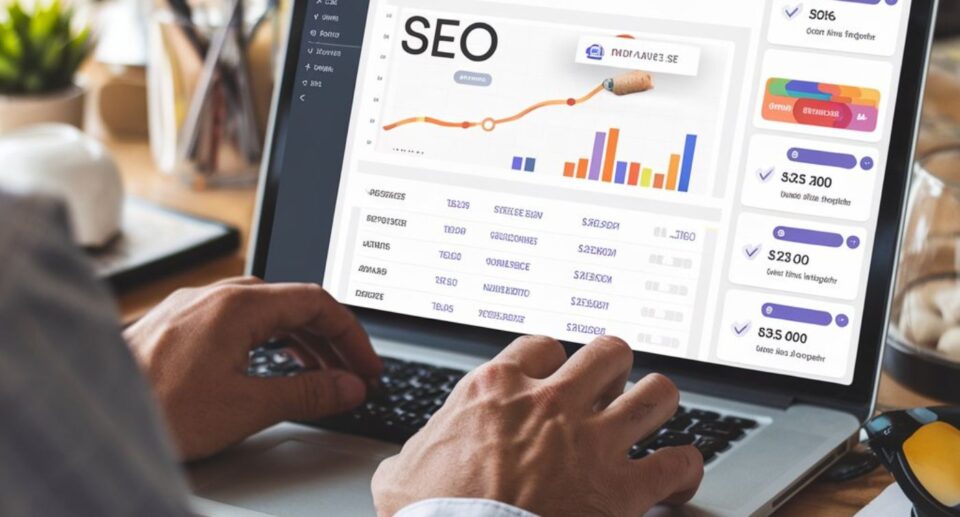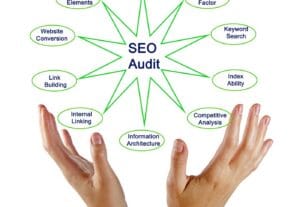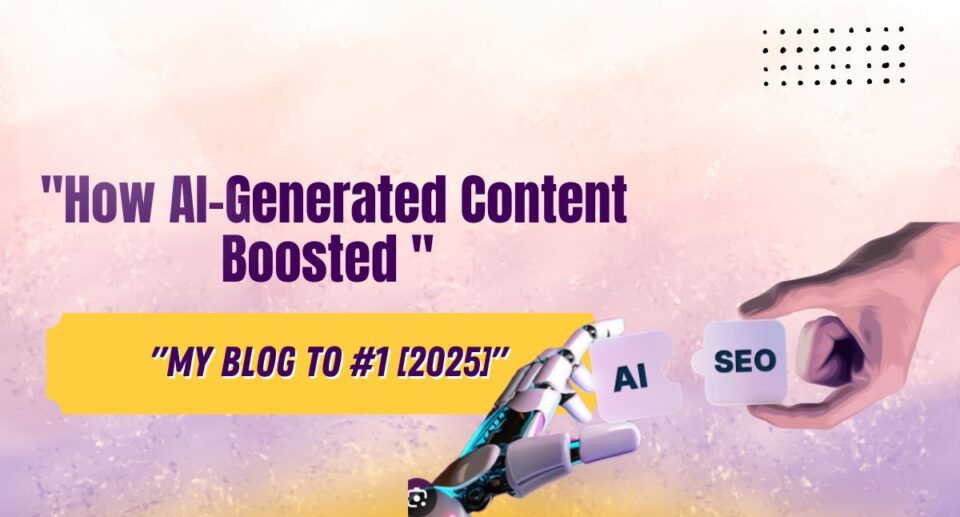Ultimate On-Page SEO Checklist: 10 Steps to Rank Higher Fast

INTRODUCTION
If you want to rank higher on Google in 2025, on-page SEO checklist is non-negotiable. Search engines prioritize optimized, user-friendly content, and this guide ensures you do it right.
 🎯 What You Will Learn:
🎯 What You Will Learn:
✔️ Key on-page SEO checklist factors for 2025
✔️ Optimizing titles, content, URLs, and images
✔️ Latest E-E-A-T & UX factors Google prioritizes
✔️ Step-by-step checklist to enhance rankings
📌 What is On-Page SEO?
On-page SEO refers to optimizing elements on your website (as opposed to off-page SEO like backlinks). This includes content, HTML, images, user experience, and technical SEO.
🔹 Why is On-Page SEO Important?
✅ Improves search rankings 🚀
✅ Boosts organic traffic 📈
✅ Enhances user experience 😃
✅ Increases conversions & sales 💰
📌 Google’s Top Ranking Factors for On-Page SEO in 2025:
✔️ E-E-A-T (Experience, Expertise, Authority, Trust)
✔️ High-quality, user-focused content
✔️ Mobile-first indexing & fast page speed
✔️ Structured data & schema markup
✅ Step-by-Step On-Page SEO Checklist
1️⃣ Keyword Research & Optimization 🔍
✅ Use Google Keyword Planner, Ahrefs, Semrush
✅ Target Long-Tail Keywords → Less competitive, higher conversion rates
✅ Use LSI Keywords → Helps with content relevance
✅ Checklist:
✔️ Primary Keyword in Title (H1)
✔️ Keyword in Meta Description
✔️ Keyword in First 100 Words
✔️ Keyword in Image Alt Text
 2️⃣ SEO-Friendly Title & Meta Description ✍️
2️⃣ SEO-Friendly Title & Meta Description ✍️
✅ Compelling Title (H1) → Click-Worthy & Engaging
✅ Use Power Words (Ultimate, Best, Complete, 2025, etc.)
✅ Meta Description → Clear, 150-160 Characters, Includes CTA
✅ Checklist:
✔️ Title Under 60 Characters
✔️ Primary Keyword in Title & Meta
✔️ Avoid Clickbait (Google Penalizes Misleading Titles)
3️⃣ Optimized URL Structure 🔗
✅ Keep URLs short & descriptive (e.g., /on-page-seo-checklist)
✅ Use hyphens (-) instead of underscores (_)
✅ Remove stop words (like “and,” “the,” “of”)
✅ Checklist:
✔️ URL Length Under 75 Characters
✔️ Primary Keyword in URL
✔️ No Special Characters or Numbers
4️⃣ Content Optimization & Formatting 📝
✅ Write for Users First, SEO Second
✅ Use Short Paragraphs (2-3 sentences max)
✅ Bullet Points & Numbered Lists → Helps Google understand content better
✅ Add FAQs → Google LOVES FAQ Schema
✅ Use Images, Charts, and Quotes
✅ Checklist: ✔️ Content is 100% Unique
✔️ Primary Keyword in First & Last 100 Words
✔️ Subheadings (H2, H3) with Keywords
✔️ Use Bold & Italics for Key Points
5️⃣ Image & Video Optimization 🖼️🎥
✅ Use WebP or Compressed Images
✅ Descriptive File Names (e.g., on-page-seo-checklist.webp)
✅ Use Alt Text With Keywords
✅ Embed YouTube Videos (Improves Dwell Time & Rankings)
✅ Checklist:
✔️ Image File Size Under 100KB
✔️ Primary Keyword in Alt Text
✔️ Video Has Captions & Optimized Title
 6️⃣ Internal & External Links 🔗
6️⃣ Internal & External Links 🔗
✅ Internal Links → Link to Relevant Pages
✅ External Links → Link to High-Authority Sources
✅ Checklist:
✔️ At Least 3-5 Internal Links Per Post
✔️ At Least 2-3 External Links to Trusted Sites
✔️ Anchor Text Includes Relevant Keywords
📌 Infographic: On-Page SEO Checklist
(Infographic will be generated)
📊 Chart: Impact of On-Page SEO on Traffic Growth
(Chart will be generated)
ADVANTAGES
1️⃣ Higher Google Rankings 📈
- Optimizing on-page elements helps search engines understand your content better, leading to higher rankings in search results.
- Using targeted keywords in the right places improves search intent matching.
2️⃣ Increased Organic Traffic 🚀
- Well-optimized pages rank higher, driving more clicks and organic traffic without spending on ads.
- Rich snippets & schema markup improve click-through rates (CTR).
3️⃣ Better User Experience (UX) 😃
- Fast-loading pages, structured content, and mobile-friendliness enhance usability.
- Readability, short paragraphs, and clear headings improve user engagement.
4️⃣ Higher Conversion Rates 💰
- SEO-friendly meta descriptions and engaging titles attract the right audience.
- Proper internal linking guides users to relevant pages, increasing dwell time and conversions.
5️⃣ Future-Proofing Against Google Updates 🔄
- Google’s E-E-A-T (Experience, Expertise, Authority, Trust) algorithm prioritizes high-quality content.
- Following an on-page SEO checklist ensures you stay ahead of algorithm updates.
6️⃣ Stronger Brand Authority & Credibility 🌍
- Optimized content, external links to trusted sources, and structured data enhance brand trustworthiness.
- High-quality, informative content establishes you as an industry leader.
7️⃣ Mobile & Voice Search Optimization 📲🎙️
- Mobile-first indexing and fast-loading pages ensure better rankings in mobile searches.
- Well-structured content & schema markup improve voice search visibility.
8️⃣ Competitive Edge Over Rivals 🏆
- Many businesses ignore on-page SEO, so a well-optimized site gives you an advantage over competitors.
- A detailed checklist ensures nothing is missed, leading to consistent improvements.
9️⃣ Reduced Bounce Rate & Improved Engagement 🎯
- Clear formatting, optimized images, and multimedia elements keep users engaged.
- Internal links encourage users to explore more pages, reducing bounce rates.
🔟 Long-Term Cost Savings 💲
- Organic SEO is a cost-effective strategy compared to paid advertising.
- A well-optimized website requires less ongoing investment while delivering long-term traffic.
Following a complete on-page SEO checklist ensures your website is optimized for search engines and users alike, leading to sustained growth and success in 2025 and beyond! 🚀
📌 5 FAQs on On-Page SEO Checklist
1️⃣ What is the most important on-page SEO factor?
The most crucial factor is high-quality content, optimized with keywords, proper structure, and meeting Google’s E-E-A-T guidelines.
2️⃣ How often should I update my on-page SEO?
Regularly audit your site every 3-6 months to keep up with Google algorithm updates and adjust accordingly.
3️⃣ Can on-page SEO alone rank my site on Google?
No, on-page SEO checklist is essential, but off-page SEO (backlinks, social signals) also plays a critical role in rankings.
4️⃣ How do I check my on-page SEO score?
Use tools like SEO Site Checkup to analyze on-page SEO checklist factors.
5️⃣ What is the ideal word count for SEO content?
For blogs, 1500+ words perform best. However, focus on quality and value over word count.

 🎯 What You Will Learn:
🎯 What You Will Learn: 2️⃣ SEO-Friendly Title & Meta Description ✍️
2️⃣ SEO-Friendly Title & Meta Description ✍️

 6️⃣ Internal & External Links 🔗
6️⃣ Internal & External Links 🔗



